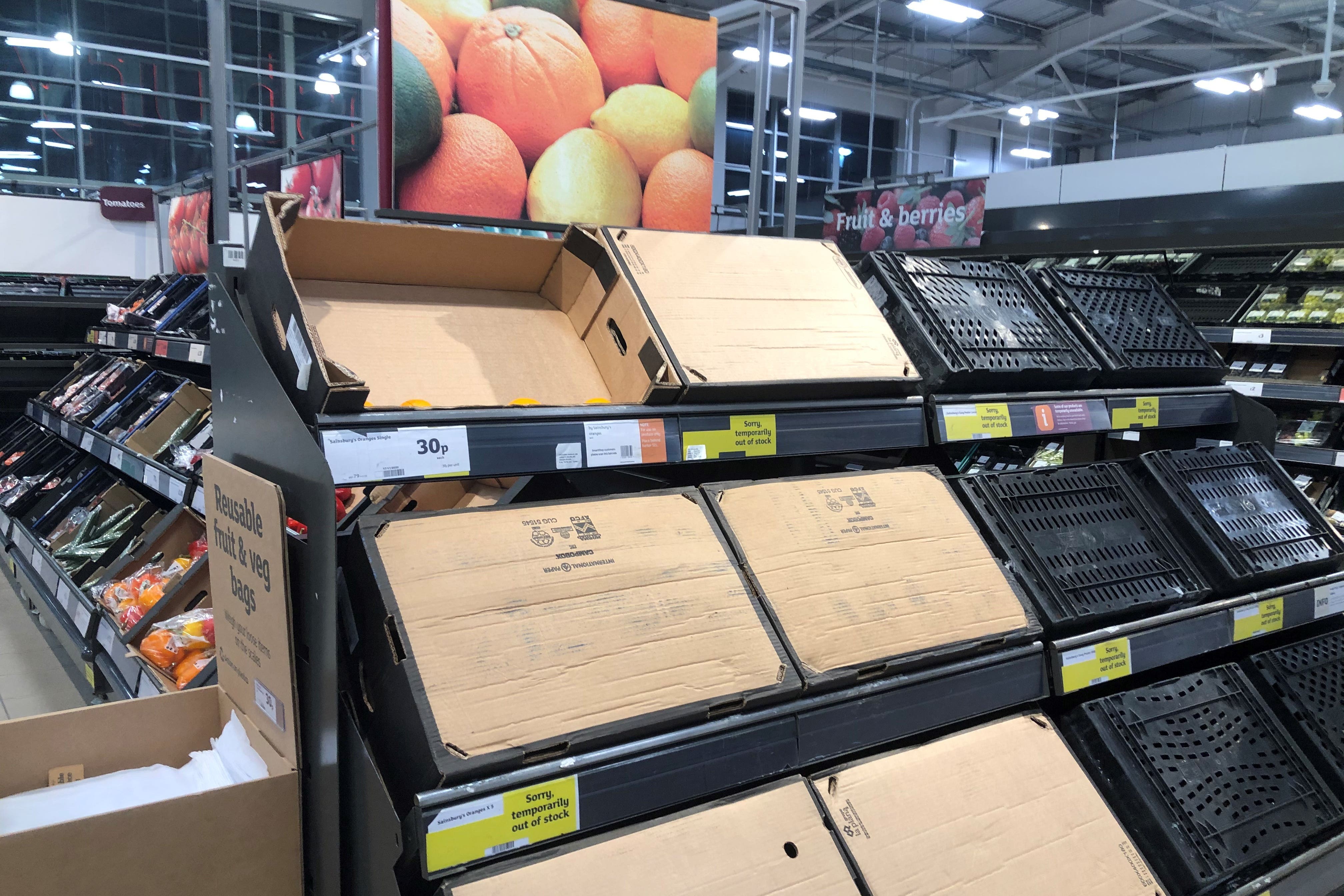UK will face greater food insecurity as climate crisis deepens, say analysts
Much of the UK’s food imports come from the Mediterranean, a region highly exposed to drought.

Your support helps us to tell the story
From reproductive rights to climate change to Big Tech, The Independent is on the ground when the story is developing. Whether it's investigating the financials of Elon Musk's pro-Trump PAC or producing our latest documentary, 'The A Word', which shines a light on the American women fighting for reproductive rights, we know how important it is to parse out the facts from the messaging.
At such a critical moment in US history, we need reporters on the ground. Your donation allows us to keep sending journalists to speak to both sides of the story.
The Independent is trusted by Americans across the entire political spectrum. And unlike many other quality news outlets, we choose not to lock Americans out of our reporting and analysis with paywalls. We believe quality journalism should be available to everyone, paid for by those who can afford it.
Your support makes all the difference.The UK will face ever greater food insecurity as long as greenhouse gas emissions continue heating the Earth’s atmosphere, analysts have said.
Around half the food consumed here is from abroad and a quarter of those imports are from the Mediterranean.
Droughts, heatwaves and wildfires have damaged harvests in southern Europe as have intense rainstorms and flash flooding – all increasingly extreme features of climate change.
Spain alone accounts for 7% of UK imports and it is the main source for some healthy staples such as oranges, lemons, grapes, sweet peppers and olive oil.
Last year, Spain experienced an extraordinarily hot summer bringing severe drought and the worst wildfire season in recent years.
Olive oil production suffered as a result with prices shooting up and until April this year it was the top product in pushing up food inflation in the UK, according to analysts from the Energy and Climate Intelligence Unit (ECIU).
They say these weather extremes will continue to worsen as long as greenhouse gas emissions keep rising and, therefore, controlling them is the only way to ensure consumers are protected from future shocks.
Gareth Redmond-King, head of international programme at ECIU, said: “Even when we’re not experiencing extreme weather, we are not immune to its impacts in a globalised world.
“Shortages of salad and other vegetables in UK supermarkets in February this year caused by extremes in southern Spain and north Africa brought home to people just how vulnerable the UK is to the impacts of climate change on our food.”
In a new report called Climate Impacts on UK Food Imports, the ECIU said the UK cannot simply grow its way out of the crisis because to do so would create extra energy demand at a time when growers still rely on fossil fuels.
The only sure-fire way to avoid even worse and more dangerous impacts is to keep global temperature rises to 1.5C, and the only way to do that is to cut our emissions to net zero
Last year, many UK growers experienced lower yields because of rising gas prices internationally and making more commodities reliant on that volatile market would only further threaten food security, the ECIU said.
It would also be difficult to grow Mediterranean food outdoors even with an increasingly warmer climate because short term weather patterns are becoming too unstable and it would also take years for new skills and infrastructure to emerge, the analysts added.
Polling commissioned by the climate-focused not-for-profit Round Our Way also suggests that 61% of Britons think the 2023 European heatwaves will negatively impact food prices in the UK and that politicians should be doing all they can to stop extreme weather getting worse.
Mr Redmond-King said: “It’s sobering to realise just how much we rely on food imports that come from parts of the world most at risk from the changing climate.
“This should be a wake-up call about the vulnerability of our food supply chains to climate change. We can’t simply grow our way out of the problem by producing many of these foods in the UK.
“The only sure-fire way to avoid even worse and more dangerous impacts is to keep global temperature rises to 1.5C, and the only way to do that is to cut our emissions to net zero.”